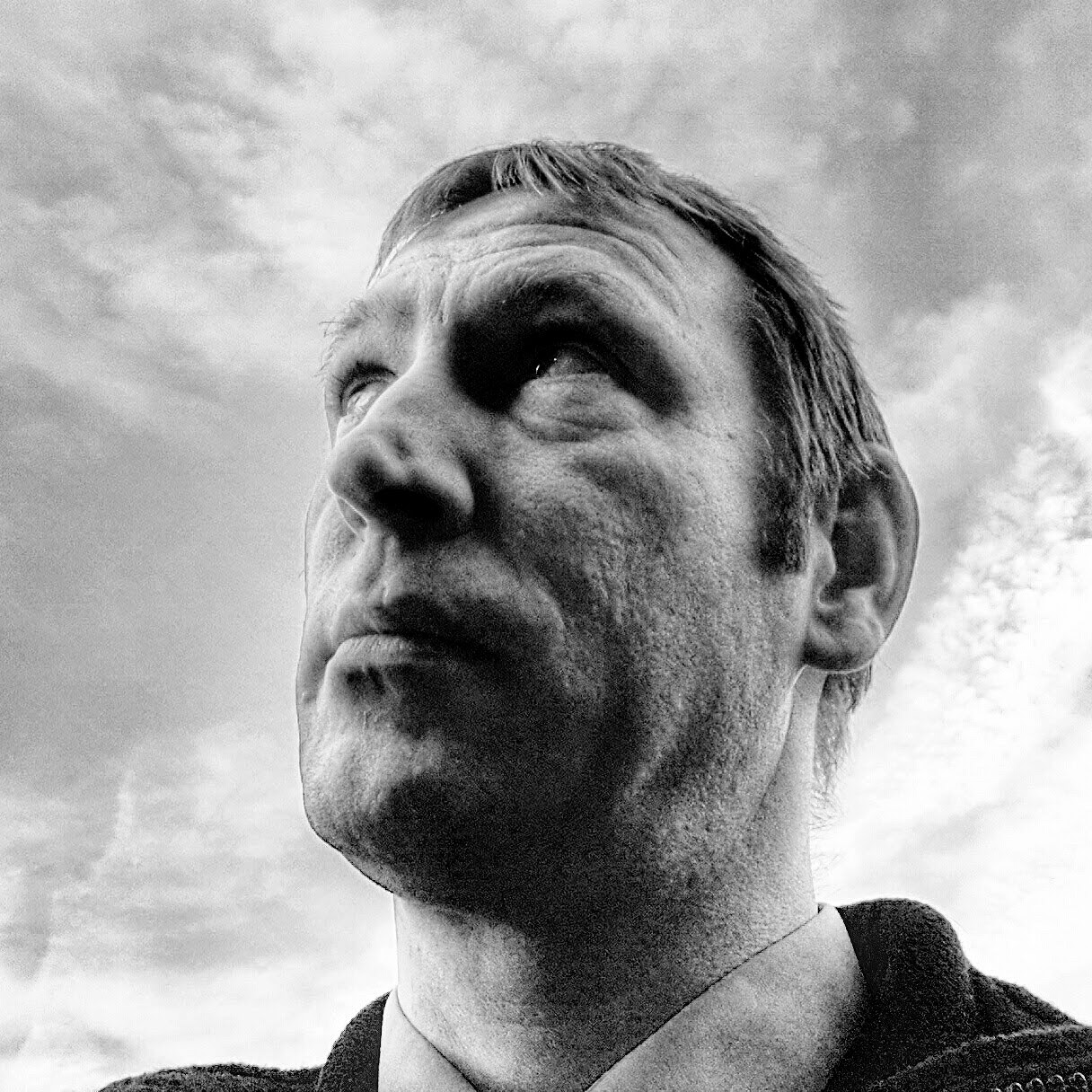I guess a part is that science seems to meticulously avoid the question “why do we live”, in a non-technical way, in a way that actually gives people a sense of meaning.
That and mental inertia, i.e. some things change very slowly.
It’s like asking why people smoke.
Is it bad for you? Yes.
Is it a burden on society? Yes.
Is it addictive and does it make you feel good? For some, yes.
Because belief is intrinsic to humanity even if we don’t believe in religion.
I believe in a lot of human concepts, including kindness, altruism, democracy and humanism. They are all still effecfively made up human ideas.
I also believe when I sit down that the chair below me really exists but I cannot truly trust my own senses 100% either. So effectively I “believe” what my sensory organs and brain interpretation tell me, but the reality is the brain and its interpretations can be wrong.
Look at the USA, the founders of the nation are often treated with a reverence akin to that of religious figures.
People have all kinds of delusions. People worship all kinds of weird things. Religion is just one of many.
Finally, someone like Ayn Rand shows that a human can have pretty reprehensible and hypocritical beliefs even if they are an atheist. She promoted bullshit “great men” theories of humanity and argued that selfishness could be used for good.
She also died penniless and on government benefits while spending her whole life preaching against things like government benefits.
People are deeply irrational even without religion.
As an atheist who is not anti-religion, I wholeheartedly agree. The religious do not have a monopoly on irrationality, or weaponizing ideology.
I see many atheists on forums proposing the idea that if we could only just get rid of religion, the world would be a harmonious and rational place. As if human beings wouldn’t still be perfectly able to come up with new and interesting ways to justify conflict and division amongst themselves.
I like to say “Humans aren’t rational creatures, humans are rationalizing creatures.”
We can rationalize nearly anything and justify it, in our own minds.
Thank you for being honest.
Humans are emotional creatures. We can’t change that. Even when we’re being rational we’re still basing every decision we make on emotions. “I’ve researched this and I feel this is the right decision.”
I like this explanation most
I believe in a lot of human concepts, …
We believe in those things because they’re practices we can observe and measure. The real question is why do theists not have the same standard of evidence for theistic claims.
I also believe when I sit down that the chair below me really exists …
Your trust (or “faith”) in the chair existing and supporting your weight is because of your experience with chairs in the past. I don’t think many people would say they have “absolute certainty” the chair exists and would hold them.
If you had a history of hallucinating you might have a higher standard of evidence, but it’s still there to be tested. The problem with religion is it seems like you need a standard of “none at all” to accept theistic claims.
Finally, someone like Ayn Rand shows …
“They do it too” doesn’t really get us to an answer, just another “why” question. She believes her claims with little to no evidence, theists believe their claims with little to no evidence, but like…why?
Serious answer:
I can’t speak for anyone else, but I believe in a religion because I’ve found it to be personally beneficial.
I was a pastor for many years and saw much of the best and worst religion had to offer. I haven’t stepped foot inside a church since COVID broke out and don’t know that I ever will again.
My personal beliefs are still a significant part of my life, but I understand why someone would ask the question that spawned this discussion.
Yas queen. COVID’s not over! And even so, God and your soul aren’t important enough to risk contacting the common cold lol
You find it personally beneficial, but you haven’t actually answered the question.
I think that does answer the question - for a lot of people, the reason they’re religious is because they find it personally beneficial for one reason or another.
yup, religion has made me mentally stable so I guess it’s beneficial to me at least.
I guess I’m putting emphasis on the word “believe” and you seem to be seeing religion as a way to find comfort. This is why I feel you are not actually answering the question that OP posed. Perhaps I’m taking the question too literally.
Adding more to this. The question is why do you believe in religion, not why you are religious. To me, there’s a difference between the two of these.
There is a significant difference, but, in my limited experience, many people are religious, but don’t actually believe, but they think they do believe. When the rubber hits the road you find it what a person actually thinks is true.
Think of your closest friend or family member. Do you “believe in” them?
So what you’re saying is that here in 2024 we’ve got it all figured out?
*Note that: 2024, everything figured out.
“There are more things in Heaven and Earth, Horatio, than are dreamt of in your philosophy.” -Shakespeare
There’s physics. And there’s metaphysics. One does not come to Faith the same way one produces a hypothesis.
We’ve got way more figured out than what religious people think.
Faith is the rejection of the possibility of producing a hypothesis.
Science is, among other things, the rejection of metaphysics.
And I love science, embrace evolution, and don’t have any beliefs that require me to reject any scientific finding.
Science covers the physical world nicely. Materialistically, it’s got the goods.
I disagree with your last line. A hypothesis is a great analogy for faith. It’s a belief that something is true. Science involves testing the hypothesis, just as faith can be tested.
It’s important to remember that science, by definition, does not prove anything either. There are only supported and unsupported theories.
I think what I’m saying there is that faith is more of an on-off switch. You see an astronaut who’s returned from space and he’s holding a pencil and he lets go of it in the air, goes and does something, and returns to the place where he let it go expecting the pencil to still be there.
It’s not there, but he BELIEVED it would be, because he had no doubt. It surprised him that it wasn’t there.
Hypothesis is quite a different thing. If I hypothesize there are crackers in the pantry, all I have to do is go and open the pantry and look and see if there’s crackers. That’s testing the hypothesis.
One does not talk about the existence of things like love, or truth, or God, in the same way one talks about crackers in the pantry. They are metaphysical, and they are different.
Close. You’re comparing a repeatable phenomenon to an unrepeatable one. Unrepeatable phenomena are where science is equal to religion in that there may only be a hypothesis supporting the theory.
For example, according to the current scientific theory of creation, two masses collided in the Big Bang. The laws of physics state that neither matter nor energy can be created or destroyed. There are scientific theories on how the masses came to exist, and what set them in motion, but there is no way to test an unrepeatable phenomenon. Interference-based creation is just as possible.
Good point. I appreciate your insight
Religion is an old form of it is what is, hope, direction, tradition, and community.
Can’t explain a thing or understand it God’s will or only God knows. Can’t do anything to help a person because they are in surgery pray or talk to God to wish for good outcomes.
Don’t feel loved or know what to do or wanted. God loves you, will show you the way, and wants you.
Most traditions and communities in the west were founded on a religion so you have hundreds of people to connect with at a church and maybe millions world wide that will help. Those raised on books of wisdom or what is right and wrong still tend to keep the values even after they move away from the religion but realize they can have values without divine beings
Lastly control. Just like businesses it is easier to control people under a religion so if you can get people indebted, traditionalized, and ostracized otherwise. You can control people easily. Lots of people don’t know what to do and why trust another human being but if a human being says wisely God said this it is easier to accept and gain a direction
This is a young person’s question.
Ah yes, how childish of OP to wonder why the majority of English speaking countries believe in answers to life’s greatest questions with little to no evidence. What a naive little question, that one.
You misunderstand. Older people have lost parents, siblings, friends. They don’t have to wonder about this question anymore because they’ve decided.
I honestly think it’s a coping mechanism that is hard wired into us.
Most if not all ancient civilizations independently had some sort of belief in a higher power.
It’s a way to deal with the death of a loved one and your own mortality.
Never ever underestimate the amazing dumbness level of humankind.
You have a cult following around celebrities and you are surprised by religion which is older than you?
The difference is we have evidence that celebrities exist
You are dumb so I am going to explain to you so you can understand why this is actually a counterexample that you just gave yourself. Irrationality is what’s the most important problem here. Celebrities can talk about absolute random and insane shit and people will believe them 100% and pretend their words are the words of god. You can prove it’s bullshit 100% and people will still believe it.
For me its a combination of learning it since childhood and experiencing minor things that i can’t explain differently.
For example once i had a thought in my mind that i should go home that evening when i see the clouds. Later at the bbq i remembered that and looked into the sky and saw some clouds in the distance and just knew that these were the clouds. But it didn’t looked like it should rain, and the weather forecast was also clear. So i stayed. Later when i went to the train, a huge number of people from a heavy metal concert that just finished came, and enough people wanted to take the last train that day that some didn’t make it inside. If i had gone home when i saw the clouds, i wouldn’t have been in that overcrowded train.
Also for me my faith looks consistent internally and with other stuff that i see.
You can’t explain a decision having negative consequences without God?
I’d say it’s partly to find some comfort with life’s many uncertainties, and one of several ways to achieve a sense of purpose when struggling for some.
Here are a few reasons people believe:
-
Meaning and Purpose: Religion can offer a framework for understanding the universe and our place in it. It can provide answers to big questions about life, death, and morality.
-
Community and Belonging: Religious communities can provide social support, a sense of belonging, and shared values. This can be especially important during difficult times.
-
Comfort and Hope: Religion can offer comfort in times of grief or hardship. It can also provide hope for the afterlife or a better future.
-
Tradition and Identity: Religion can be a core part of a person’s cultural heritage or family identity. People may feel a connection to their ancestors or cultural background through their faith.
-
Ethics and Morality: Many religions provide a moral code that guides people’s behavior. This can be helpful in making decisions about right and wrong.
I don’t believe, but I can see why people stick with it and don’t look beyond it. You can get all these things without religion, its just not something that’s taught/passed down in the same way as religion is. Additionally, deconstructing is very difficult. You’re raised to believe something to be real and you’re expected to just drop it and step out of Plato’s cave? You’d look like a madman to any friends/family who aren’t willing and ready to step out and look around.
The one point I can really agree with is the meaning and purpose part. I’m not religious and the whole what happens after death part really fucks me up quite a bit. It’d be really damn nice if I could just go “I’ll go to Heaven” and be done
Personally I don’t see what the afterlife has to do with your purpose or sense of meaning in this life. For me, I figure my purpose is whatever I find fulfilling in life while hopefully helping others do the same. Anything that comes after that is a bonus.
Part of the identity crises that comes with(out) religion is the ultimate question of purpose: why are we suffering, surely it has a reason? Some of us are content to accept that there is no purpose, and therefore we must define our own; others need a purpose greater than themselves and/or to have one defined for them, and look to religion for that purpose. There is no right answer, and the struggle of identity and purpose are well documented in religion, fiction, history, and philosophy.
Also, it can depend on certain other factors.
My partner and I had a difficult conversation recently about how we plan to handle her brother when her mother passes.
Her mother is obviously religious and raised him religiously Christian.
He is a sweet man with a severe developmental disability. Things literally take a very long time for him to learn. He still acts like a teen and he’s pushing 40. That’s not his fault, that’s just life. We love him.
The thing is though…
We don’t believe in religion, but we also think that when his mother finally passes, it would not be wise to try to turn him from Christianity.
He struggled and still struggles years later due to the passing of his father. The idea of being able to see his father in heaven is big to him.
At one point, he panicked because he was playing DOOM 2016 on his game console, and he asked my partner (his sister) if he was going to go to hell for playing it. She reminded him that the Doomslayer kills demons and loves bunnies and reminded him the themes of the game say demons are bad, even if the game itself is violent.
We don’t think it’s worth it to try to break his brain when he’s over 40 and his mom finally passes. Hell, she’s in good health, he could be over 50 when it happens. He has a learning disability and it would literally be unfair to him to try to force a change in belief on him at such a late stage with such a disability.
It’s not worth it to wreck his mental health so we can feel better about being “truthful” with him. We’re focusing on trying to relate healthy interpretations of Christianity to him.
As a large language model, I cannot endorse any one religion
Come on, this list of reasons was written by an LLM
It makes people feel better, not in general but better than others, misty religions are about “this is how I’m better then you heathen”
-
Because we are convinced it is true.
The vast majority of people believe whatever the fuck they’re told to believe.
They are raised with it and old habits die hard.
The fact that some people start as atheists and later become religious demonstrates there has to be more reasons than just that.
Never personally met an atheist that had found religion or heard about one, other than in American evangelical stories, but I’ve met a few non-religions people who have later in life found religion. Although I live in a quite atheaistic country, so there is a lack of peer pressure or need to talk about such things.
Never personally met an atheist that had found religion or heard about one
Well congratulations, now you have. It isn’t quite as rare as you might think.
personally
Everyone is everything in the internetz.
What about the internet makes this easier to lie about? I could tell you the same thing to your face and you still couldn’t fact check it.
They aren’t calling you a liar, they’re saying they never met someone like that in person.
They are drawing that distinction for a reason. They literally said everyone is everything on the internet. I don’t how else you could possibly read that.
You are correct. However, relatively there are a tiny amount of them and their reasons are not good reasons.
Almost always, they are in a vulnerable state and at that time have also been exposed to some kind of religious indoctrination specifically tailored to take advantage of that.
It’s easy to see this from the perspective of brainwashing techniques used by cults. Religion just has more developed techniques for longevity.
some people start as atheists
We all do. It takes effort to instill beliefs and usually greater effort to change them. Education is the most common inoculation.
Your understanding of their reasoning comes from a fundamental assumption that your choice is the correct choice for every person. They willingly made the wrong decision, therefore they must have been manipulated into doing so.
Many people do just become religious without outside influence. On a large scale, every society will create its own version of religion without fail. Clearly, they have something to gain psychologically by doing so.
While religious indoctrination obviously exists and obviously is a problem, it doesn’t discount the actual benefits that religion seems to have, and by extension the reasoning with which some people become religious.
We all do.
When I said “start”, it was in reference to the process of changing your religious identity, not your life as a whole.
My understanding comes from many years of direct study and experience. As such, you’ll find that I don’t apply what I say to all people, or “every person.” I stand by what I said and painting it as absolutes is arguing in bad faith.
When it comes to beliefs which are very important to people, we aren’t usually going out of our way to believe things that aren’t true. What’s different with the religious is that they tend not to be rigorous in adjusting their beliefs when there is little to no evidence to support them.
While this is common with humans over all sorts of things, it’s particularly common with deeply held beliefs. There’s many reasons for this, but religion is a very refined method of influencing human belief. Much of it is designed to steer away from questioning it, and also to reinforce it.
With this in mind, it’s easy to see why it’s not so much a choice, but for those few we are discussing, we could say that it’s just something that happened.
As for the benefits, psychological or social, etc. I don’t discount them at all. What I do say, however, is that none of them require religion. Any and all benefits attributed to religion can be achieved without it, and very often they are.
When humans are born, they only acquire a religious identity if it is impressed on them. If they acquire it after childhood, it’s usually due to the reasons I’ve outlined.
I stand by what I said and painting it as absolutes is arguing in bad faith.
This I agree with. Looking back, you were more careful than I thought you were to specify you were not talking in absolutes.
I will however double down that you are still making a fundamental assumption that your option is the correct one, and you make it more clear by arguing that all benefits of religion are possible without religion. If all benefits of religion can be attained without risking the detriment, then religion is the worse option by far.
However, thinking of this made me realize I’m just making the opposite assumption. Just like you, I’ve constructed a strongly held belief about religion based on my life experiences, which are entirely anecdotal and effectively meaningless.
How would you even get evidence that most people are manipulated into becoming religious? How would you get evidence that most people don’t? How would you get evidence that religion does or doesn’t benefit people? How would you even define benefit in the first place?
This argument is meaningless.
Well, thank you for that.
However, I’m not making an assumption. I’m merely pointing out that if religion isn’t necessary for the implied benefits, then why use that method? The fact is that no one uses blind faith as the basis for anything else important to them.
I don’t have a strongly held belief regarding the existence of any gods. When presented with the assertion that they do exist, the lack of good evidence means that I remain unconvinced. I’m open to good evidence.
In the case of manipulation, as you call it, religious indoctrination from birth by family, community and peers is well documented. I’m surprised you’re not aware of this.
As for the assessment of benefits, there’s a great deal of research into what people do with their lives and why. We know a lot about these motivations and there are clear lines to known conclusions. It’s largely psychology.
There is nothing to suggest we need religion for any of the benefits that religious people say they obtain from it, or that they demonstrate through their actions.
I hope this makes things clear but feel free to ask if not.
I don’t have a strongly held belief regarding the existence of any gods.
The strongly held belief I’m referring to isn’t a belief in a god or lack thereof, its a belief that religion is a net negative for society.
I’m surprised you’re not aware of this.
To say I’m not aware of this is again to argue in bad faith. I have mentioned myself that religious indoctrination of course still exists, and is a problem.
As for the assessment of benefits, there’s a great deal of research into what people do with their lives and why.
Yes there is research into how religion affects society, but it isn’t very useful for this purpose for multiple reasons. There is no instance of a society without religion, so the difference between a religious and non-religious society can’t be studied. There can be no consensus on what is beneficial and what isn’t, as morality itself isn’t objective.
There is not and there never will be definitive evidence as to whether or not religion is beneficial for society.
There is nothing to suggest we need religion for any of the benefits that religious people say they obtain from it,
There is also nothing to suggest the opposite, because this can’t really be determined. You would have to so create a set of all the benefits religious people claim to get, which in and of itself would be a monumental task. Then, you would have to demonstrate that nonreligious people can achieve all of the exact same benefits.
This is why I’ve come to the conclusion that this argument is pointless, and neither of us know anything beyond our personal experience.















